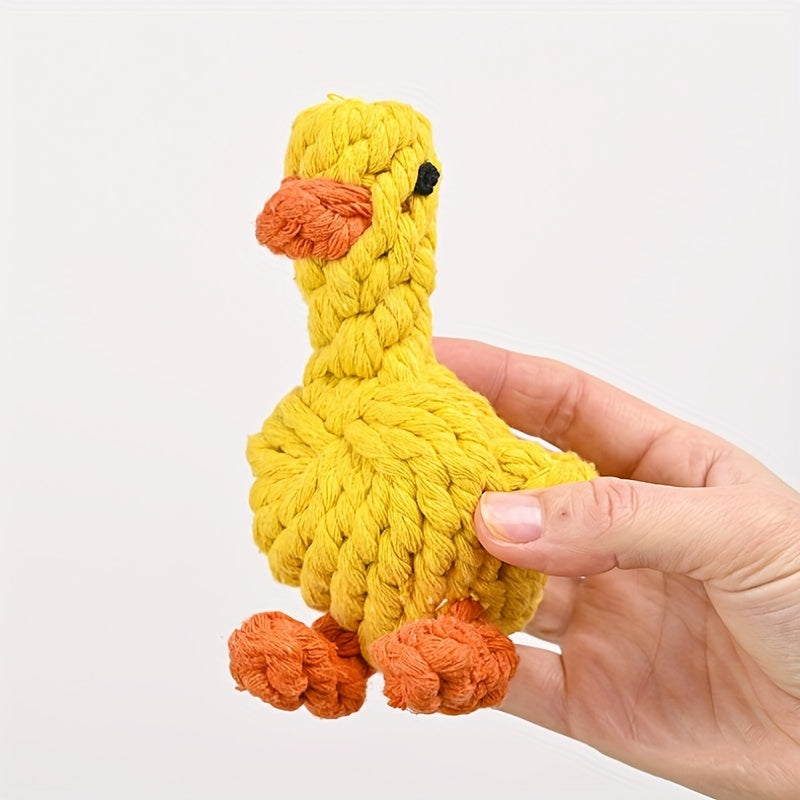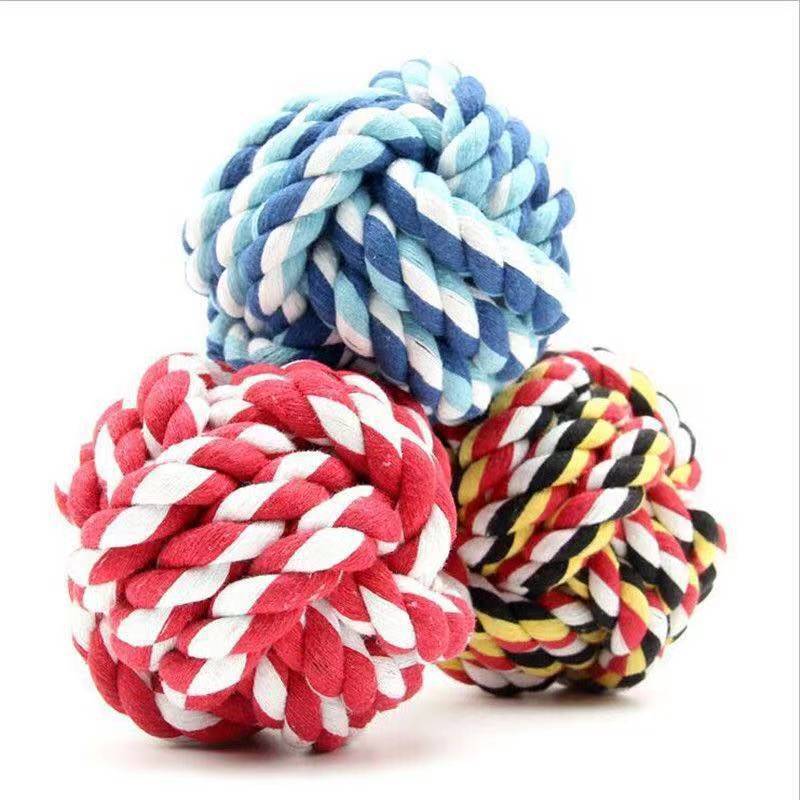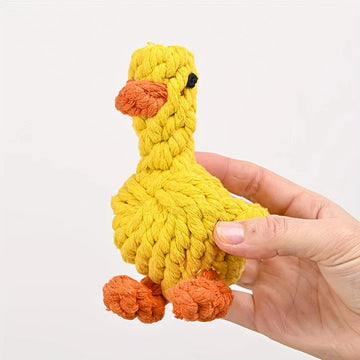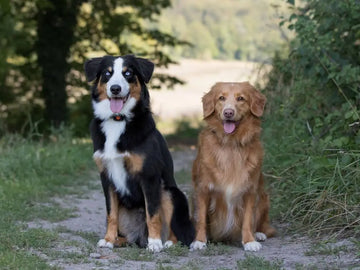Looking for the perfect dog toys for small dogs? You're not alone! Selecting the best playthings for your furry companion can feel tricky with so many options out there. But don’t worry—this guide is here to help you find the ideal mix of fun, safety, and durability. Whether it’s to keep them busy while you work, improve their dental health, or strengthen your bond during playtime, the right toys make all the difference. Let’s dive into the essentials of choosing the best small dog toys for your pup’s happiness and well-being!
Understanding Your Dog’s Needs
Every small dog has its own personality, preferences, and physical needs. Recognizing what makes your pup tick is the first step to choosing their ideal toys.
-
Size and Comfort
Small dogs, like Yorkies, Maltese, and Shih Tzus, have tiny mouths and may struggle with oversized toys. It’s essential to pick toys proportionate to their size, ensuring they’re easy to carry, chew, or chase. A well-sized toy not only keeps them engaged but also minimizes risks of injury or choking.

-
Activity Levels
Is your pup a sprinter who loves running or a nap enthusiast who prefers snuggly toys? Energetic dogs might enjoy balls, frisbees, or other fetch-friendly options, while quieter ones may favor plush companions or interactive puzzle toys. -
Chewing Tendencies
Some dogs are aggressive chewers, while others nibble gently. Puppies, especially, go through teething stages where chewing is instinctual. If your dog loves to gnaw, sturdy pet toys made of durable rubber or nylon are a must to prevent destruction (or swallowing) of unsuitable items.
Material Matters: Safety Above All
When it comes to choosing toys, safety and quality materials are non-negotiable. Small dogs often have delicate teeth and jaws, so opting for safe, durable materials is essential.
-
Non-Toxic Materials
The best pet toys are made from BPA-free rubber, non-toxic plastics, or high-quality, pet-safe fabrics. Always check labels and avoid cheap toys that might contain harmful chemicals. -
Soft Yet Durable
For teething puppies or smaller breeds with fragile teeth, softer materials like plush fabric or silicone work well. However, these toys should be tough enough to endure light chewing to prevent tears or breakage. -
Avoid Detachable Parts
Steer clear of toys with buttons, beads, or small plastic pieces that your dog could accidentally swallow. Instead, go for seamless designs or toys with securely attached features.
Best Types of Small Dog Toys
There’s a world of toys tailored to suit different personalities and play styles. Here are the most popular categories to consider:
-
Interactive Puzzle Toys
Perfect for curious pups, puzzle toys and treat-dispensers encourage problem-solving and mental engagement. They’re particularly useful when you’re not around to play, keeping your dog busy and entertained. -
Chew Toys
Chew toys are a staple for dogs, especially for teething puppies or adult dogs who enjoy gnawing. Look for tough rubber toys or dental chews, which can double as tools for oral hygiene by reducing plaque buildup.

-
Fetch Toys
Balls, lightweight frisbees, or small ropes are excellent for active dogs that enjoy a good game of fetch. Ensure the toy’s size is appropriate to your dog’s mouth to make carrying and chasing comfortable. -
Plush Toys
Soft, cuddly toys are great for small dogs that love to snuggle. Plush toys often have squeakers, but be mindful that these can be hazardous if your dog is prone to ripping them apart. -
Squeaky Toys
Many small dogs adore squeaky toys because the sound taps into their prey instinct. While fun, always supervise your pet during squeaky playtime to prevent them from chewing out and swallowing the squeaker.
Matching Toys to Your Dog’s Personality
Your dog’s personality can heavily influence what type of toy they’ll love.
-
The Adventurer
Explorers enjoy toys that simulate hunting or foraging, like snuffle mats or treat-dispensing puzzles. These stimulate their natural instincts and keep them engaged for longer. -
The Cuddler
For dogs that love affection, plush toys or dog-safe blankets can provide a comforting playtime experience. -
The Energizer
If your pup is bursting with energy, choose balls, frisbees, or rope toys to help burn off steam during playtime.
Key Tips for Choosing the Perfect Toy
-
Size Appropriateness
Toys should be easy for your dog to hold and play with, without being small enough to pose a choking hazard. -
Durability
Inspect toys for weak seams, frayed edges, or cracks that might break apart during play. Durable toys last longer and reduce risks of accidental ingestion. -
Multi-Functional Toys
A toy that serves multiple purposes—such as a ball that doubles as a treat dispenser—can provide added value and prolonged entertainment. -
Rotating the Toy Collection
To keep your dog interested, rotate their toys every few weeks. This keeps playtime exciting and prevents boredom from familiar items.

The Importance of Playtime
Playing with your dog is more than just fun; it’s an essential part of their overall well-being. Here’s how toys contribute:
-
Mental Stimulation
Interactive toys and puzzles challenge your dog’s mind, preventing boredom and reducing anxiety. -
Physical Exercise
Fetch and chase toys help your dog stay active, supporting their cardiovascular health and maintaining a healthy weight. -
Bonding Opportunities
Engaging in play with your dog strengthens your bond, offering both you and your pet a chance to share joy and companionship.
Choosing the Right Toys for Small Dogs
Finding the best small dog toys doesn’t have to be complicated. With a little effort and attention to your pet’s needs, you can curate a toy collection that keeps them happy, healthy, and engaged. Whether it’s soft plush companions, durable chewables, or mentally stimulating puzzles, the options are endless.
At the end of the day, the best toy is one that makes your pup wag their tail in excitement while keeping them safe. So, don’t shy away from trying out different options and discovering what works best for your furry friend. And remember, every moment you spend playing with your dog is an opportunity to build memories that’ll last a lifetime.
Closing Thoughts
Selecting the right dog toys for small dogs is all about balancing fun, safety, and your pup’s unique preferences. Toys are more than just entertainment—they’re tools for better health, mental sharpness, and a closer bond between you and your pet. So, whether it’s a soft plush toy for snuggles, an interactive puzzle for brain workouts, or a squeaky ball for endless fetch sessions, don’t hesitate to spoil your furry friend. After all, a happy dog means a happy owner.







